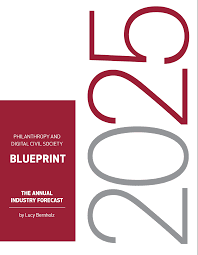by Nathan Gardels in Noema…Profound transformations occurring simultaneously mark our new Age of Upheaval.
Why is ChatGPT telling people to email me?
by Kashmir Hill in The New York Times…reporter who writes about A.I. finds her work is catching on — with the Chatbot she often writes about.
They asked an A.I. chatbot questions. The answers sent them spiraling.
by Kashmir Hill in The New York Times…Generative A.I. chatbots are going down conspiratorial rabbit holes and endorsing wild, mystical belief systems. For some people, conversations with the technology can deeply distort reality.
Can we see our future in China’s cameras?
by Megan K. Stack in The New York Times…It’s not that our government is using the surveillance infrastructure in the same manner as China. It’s that, as far as the technology goes, it could.
Q&A with Jason Pruet
by Kyle Dickman in Los Alamos National Laboratory…For a variety of reasons, government support for big science has been eroding since then. Now, AI is starting to feel like the next great foundation for scientific progress. Big companies are spending billions on large machines, but the buy-in costs of working at the frontiers of AI are so high that no university has the exascale-class machines needed to run the latest AI models. We’re at a place now where we, meaning the government, can revitalize that pact by investing in the infrastructure to study AI for the public good.
Navigating complexity: Embracing the human pace
by Dark Matter Labs on Medium…Many-to-Many is designed for groups who want to collaborate to solve complex challenges but require new ideas about value, ownership, and power.
More in this category
“Putting America First” — Undermining health for populations at home and abroad
by Christopher P. Duggan, M.D., M.P.H., et al. in The New England Journal of Medicine…In the initial months of the Trump administration, numerous executive orders have led to a chaotic dismantling of U.S. foreign-assistance and global health efforts. These orders have already had, and will continue to have, severe adverse effects on vulnerable populations globally. But they also have serious implications for people in the United States.
Google confirms Gmail upgrade—3 billion users must now decide
by Zak Doffman in Forbes…In the last year we have seen one Gmail/Workspace AI upgrade after another. This won’t stop. And so it will become ever more important for users to be clear as to what they’re agreeing, how it works, and what opt-ins and opt-outs are available.
Are we living through a catabolic collapse?
by Zaid Hassan on LinkedIn…Unlike theories that frame collapse as an external shock, catabolic collapse suggests that the mechanism of decline is internal, driven by the growing mismatch between resource consumption and available inputs.
2024 Future Perfect 50 list
From Vox…innovators, thinkers & changemakers working to make the future
a better place.

Strategy 2030 mid-term review and forecast
From IFRC Solferino Academy…As we reach the midpoint of Strategy 2030, we are entering a new humanitarian era. A complex mass of emerging trends is changing the world around us and affecting our ability to act…
The hunger gap
by George Monbiot in his blog…A gulf in public understanding prevents us from seeing how and why our food supply is at risk.

Global risks report 2025
by Mark Elsner, Grace Atkinson, and Saadia Zahidi in the World Economic Forum…The Global Risks Report 2025 presents the findings
of the Global Risks Perception Survey 2024-
2025 (GRPS), which captures insights from over
900 experts worldwide. The report analyses global
risks through three timeframes to support decisionmakers in balancing current crises and longer-term
priorities.

Philanthropy and digital civil society: Blueprint 2025
by Lucy Bernholz in Blueprint 2025…Philanthropy and Digital Civil Society: Blueprint is an annual industry forecast about the ways we use private resources for public benefit in the digital age. Each year, the Blueprint provides an overview of the current landscape, points to big ideas that matter, and directs your attention to horizons where you can expect some important breakthroughs in the coming year.
China’s ageing population: A demographic crisis is unfolding for Xi
by Laura Bicker in BBC…Over the next decade, about 300 million people, who are currently aged 50 to 60, are set to leave the Chinese workforce. This is the country’s largest age group, nearly equivalent to the size of the US population.
Godfather of AI’ shortens odds of the technology wiping out humanity over next 30 years
by Dan Milmo in The Guardian…Geoffrey Hinton says there is 10% to 20% chance AI will lead to human extinction in three decades, as change moves fast
Combining AI and Crispr will be transformational
by Jennifer Doudna in Wired.com…The genome-editing technology can be supercharged by artificial intelligence—and the results are already being felt.

Using emergence to take social innovations to scale
by Margaret Wheatley and Deborah Frieze on Margaretwheatley.com…Emergence is the fundamental scientific explanation for how local changes can materialize as global systems of influence. As a change theory, it offers methods and practices to accomplish the systems-wide changes that are so needed at this time. As leaders and communities of concerned people, we need to intentionally work with emergence so that our efforts will result in a truly hopeful future.
Collaboration and empathy as evolutionary success stories
by Daniel Christian Wahl in Medium.com…Spreading the story of why we care about life and the health of the whole and sharing the narrative of interbeing is culturally creative meta-design. By sharing the new and ancient story of interbeing we facilitate the emergence of diverse regenerative cultures scale-linked by empathy and cooperation.
The great abandonment: what happens to the natural world when people disappear?
by Tess McClure in The Guardian…As populations move and shrink, people are leaving long-occupied places behind. Often they leave everything in place, ready for a return that never comes. In Tyurkmen, Christmas baubles still hang from the curtain rails in empty houses, slowly being wrapped by spiders. In one abandoned home, a porcelain cabinet lay inside a crater of rotted floorboards, plates still stacked above a spare packet of nappies for a visiting grandchild. Occasionally, abandonment happens all at once, when a legal ruling or evacuation sends people scuttling. But mostly, it is haphazard, creeping, unplanned. People just go.
I’m finally into ‘prepping’ and ready for the apocalypse
by Eva Wiseman in The Guardian…Piles of loo paper, a years worth of tinned goods and snake-proof boots. No wonder prepping has become a lifestyle choice

